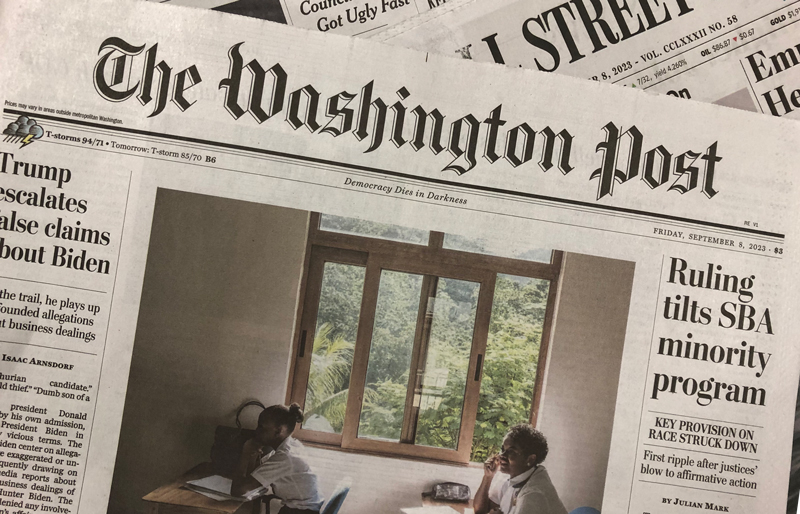
Case Update
Case Status: Victory in District Court
Ultima Services Corporation v. U.S. Department of Agriculture, et al.
- Categories:
- Civil Rights
Ultima: A Major Race Preference Challenge
CIR’s District Court victory against the Section 8(a) racial set-aside program is already making waves that the mainstream press cannot ignore. The Wall Street Journal and Washington Times featured early editorials on the significance of the case. And on September 8, the Washington Post featured a front page, above-the-fold story describing the already substantial impact of the decision less than two months out.
CIR’s suit challenges a race preference built into the Section 8(a) program. Originally, Congress enacted Section 8(a) to set aside federal government contracts to small disadvantaged businesses. However, a 1986 Small Business Administration regulation presumes that certain minority-owned businesses qualify as socially disadvantaged. Since then, the SBA has set aside the overwhelming majority of its Section 8(a) contracts on the basis of race.
Ultima is shaping up to be the new major race preference challenge following last year’s Supreme Court decision ending race preferences in college admissions in the Harvard and North Carolina cases. Whereas those cases only affect college applicants, the SBA has awarded tens of billions of dollars in federal government contracts on the basis of race over the last four decades through the Section 8(a) program. The Post reports that in 2020 alone, “8(a) firms were awarded $34 billion in government contracts,” most of which were minority-owned firms that were eligible to participate on the basis of race.
The Post’s story makes much of the fact that this Summer’s District Court decision has left minority-owned 8(a) contractors scrambling to prove that they are eligible to participate in the lucrative program. The chief complaint lodged by advocates of the race preference is that minority owned small businesses must now show that they have faced tangible, economic disadvantage as a result of their race to qualify for the program. In reality, this is no more onerous than what small-business owners who belong to non-preferred racial groups have had to do to for decades.
The story only goes to show how unfair the Section 8(a) race preference was to small businesses owned by members of disfavored racial and ethnic groups and how consequential victory in Ultima will prove to be.
